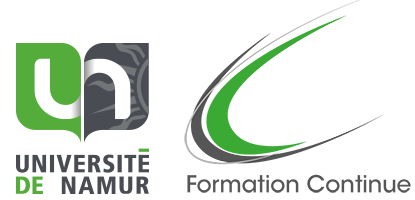Training 'Concepts and Methods in Economics'
Training Objectives
The training, entirely conducted in English, aims to develop mastery of fundamental skills in economic sciences. Successful completion of this training grants access to the Specialized Master's program in International and Development Economics (SMIDE) for those who wish to deepen their knowledge in the field.
Here are the specific skills of the "Concepts and Methods in Economics" training:
- Demonstrate comprehension of the main concepts and theories required to understand issues in international and development economics
- Reason and make use of mathematical language
- Demonstrate understanding of the basic theories used in economics (microeconomics, macroeconomics)
- Reason and make use of economic language (causes-and-effects mechanism)
- Construct and manage a database
- Apply quantitative and qualitative research methods to data analysis with statistical software (e.g. stata, matlab)
- Communicate graphically and schematically
- Communicate with digital means (including ppt presentation, use of digital interactive means)
Content of the training
The training consists of 4 modules and includes 75 hours in total.
1. Quantitative methods - Review of the analytical tools for economists
Review the most useful quantitative concepts and methods used in economics to reach the following objectives:
- Master the most common quantitative tools for economists
- Translate basic economic problems into mathematical language
- Figure out economic problems by drawing and reading graphs
- Solve basic economic problems using quantitative methods
- Interpret quantitative information in economic terms
- Solve optimization problems related to economic dynamics through the use of statistical softwares (Matlab).
2. Macroeconomics - Review of basic concepts and mechanisms
Demonstrate understanding of concepts and theories as well as applications:
- National accounts, balance of payments, exchange rates systems;
- Equilibrium and macroeconomic models to analyse the impact of fiscal and monetary policies on aggregate variables;
- Introduction to macroeconomic data analysis with Matlab.
3. Microeconomics - Fundamental microeconomic models
Demonstrate understanding of concepts and theories as well as applications:
- Consumers' choices,
- Producers' choices,
- Competitive equilibrium,
- Monopoly and characterisation of resulting allocations
4. Econometrics - Review of basic econometrics using Stata
Demonstrate understanding of concepts and theories as well as applications:
- Basic statistics;
- OLS: hypothesis, quality and biased estimation;
- Interpretation of estimation results;
- Use and interpretation of dummy variables.
- Instrumental variables
Training Evaluation
To attest that participants have effectively acquired the skills from each module, they are assessed through their participation in online and/or in-person sessions, submission of assignments, and successful completion of a test. These various evaluation activities are organized within each module. A final in person evaluation will be organized for each module.
Training Organization
The training will be organized both remotely and in-person over a period of 4 months, starting from February to April.
-January 31, 2026: deadline for applications (to apply please send CV and transcripts to smide@unamur.be )
-February, 17, 2026: Kick off session (in person, UNamur 4-6pm)
Training Team: Romain Houssa, Nicolás Larrea, Clarice Manuel
Registration
Register now by sending your CV and transcripts: smide@unamur.be
Access Conditions
To be eligible, candidates must hold a university degree of 240 credits if the degree was obtained in a European Union (EU) country, and 300 credits if obtained outside the EU. All fields of study are considered, with a focus on the following domains: law, political science, sociology, communication, computer science, civil engineering, bioengineering, and others.
Training Fees
- If you are employed: 300 euros
- If unemployed/student (based on supporting documents proving your unemployed/student status): 150 euros

